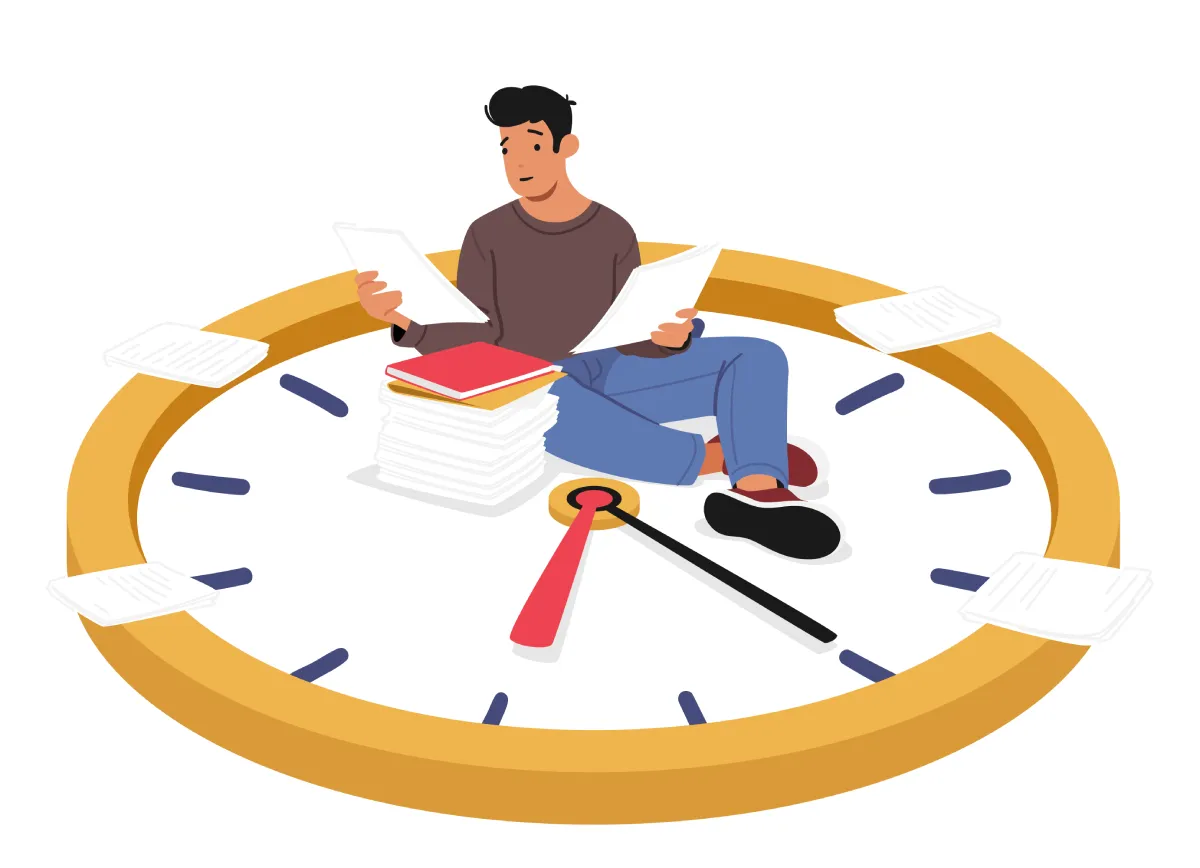Maximizing Your Study Time: Quality Over Quantity
The myth that academic success requires endless hours of studying has misled countless students into inefficient study habits that produce mediocre results despite significant time investment. Many students equate time spent with books open to productive learning, failing to recognize that focused, strategic study sessions often yield better outcomes than marathon cramming sessions filled with distractions and mental fatigue.
Effective studying isn’t about logging more hours at your desk – it’s about making every minute count through strategic approaches that align with how your brain actually processes and retains information. This shift from quantity to quality thinking can transform academic performance while reducing the stress and burnout that plague students who rely on brute-force studying methods.
The revelation about efficient studying hit me during finals week of my sophomore year. While my roommates pulled all-nighters reviewing material they’d neglected all semester, I was getting more sleep and feeling more confident about my exams. The difference wasn’t intelligence or easier courses – it was discovering how an AI Homework Helper could streamline my study process by identifying exactly what I needed to focus on and providing targeted practice that addressed my specific knowledge gaps.
Time management in academic contexts requires understanding the difference between busy work and productive effort. Students often engage in activities that feel like studying but don’t actually enhance understanding or retention. Highlighting passages, recopying notes, and passively rereading chapters create the illusion of progress without building genuine competency in the subject matter.
The science of learning reveals that spaced repetition and active recall produce more durable learning than massed practice and passive review. Students who distribute their study sessions over time and regularly test their knowledge retain information longer and perform better on assessments than those who cram intensively before deadlines.
Cognitive load theory explains why multitasking during study sessions reduces effectiveness significantly. When students attempt to study while checking social media, watching television, or carrying on conversations, their cognitive resources become divided, reducing the depth of processing and hampering memory formation. Focused attention during shorter study periods outperforms divided attention during longer sessions.
The testing effect demonstrates that retrieving information from memory strengthens learning more than simply reviewing material. Students who regularly quiz themselves, work practice problems, and attempt to explain concepts without referring to notes develop stronger mastery than those who rely primarily on passive review methods.
Strategic breaks during study sessions prevent mental fatigue and maintain concentration levels throughout extended learning periods. The brain’s attention systems have limited capacity and require rest to function optimally. Students who incorporate deliberate breaks into their study schedules often accomplish more in less time than those who attempt to study continuously.
Learning objectives should guide study activities rather than arbitrary time requirements. Students who identify specific goals for each study session – such as mastering particular concepts, completing certain problem types, or understanding key relationships – make more efficient use of their time than those who simply plan to “study chemistry for three hours.”
The importance of sleep in memory consolidation means that all-night cramming sessions often produce worse results than shorter study periods followed by adequate rest. During sleep, the brain processes and strengthens memories formed during waking hours. Students who sacrifice sleep for additional study time may actually impair their performance on assessments.
Environment design significantly impacts study effectiveness. Students who create dedicated learning spaces free from distractions, equipped with necessary materials, and optimized for concentration can accomplish more in focused sessions than those who attempt to study in chaotic or unsuitable environments.
The Pareto Principle – the idea that 20% of efforts often produce 80% of results – applies directly to academic studying. Students who identify the most important concepts, focus on their weakest areas, and prioritize high-impact activities achieve better outcomes than those who try to cover everything equally without strategic prioritization.
Metacognitive awareness helps students recognize when their current study methods aren’t working and adjust their approaches accordingly. Students who monitor their learning progress, identify effective strategies, and abandon unproductive habits develop more efficient study routines over time.
The compound effect of efficient study habits becomes apparent over entire academic careers. Students who master time management, focus techniques, and strategic learning approaches early in their education continue to benefit from these skills throughout their professional lives, while those who rely on inefficient methods struggle increasingly as material becomes more complex.
Technology tools can enhance study efficiency when used strategically but can also become sources of distraction when implemented poorly. Students who use digital resources to clarify concepts, provide practice opportunities, and organize information often study more effectively than those who either avoid technology entirely or allow it to disrupt their focus.
Regular assessment of study effectiveness helps students refine their approaches and eliminate time-wasting activities. Students who periodically evaluate which study methods produce the best results for different types of material can continuously improve their efficiency and reduce the time required to achieve mastery.
The integration of efficient study habits into daily routines creates sustainable academic practices that prevent the stress and panic associated with last-minute preparation. Students who make consistent, focused effort part of their regular schedule often find academic success less stressful and more enjoyable than those who rely on intensive cramming periods.

Leave a Reply